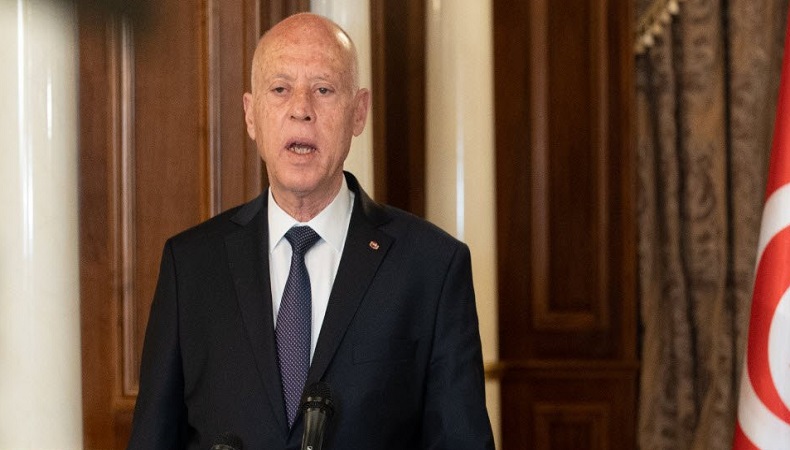Tunisia: Kais Saied’s priorities, clean up the judiciary and form a new government

During a meeting with the head of the Superior Council of the Judiciary, Youssef Bouzakher, at the palace of Carthage, President of Tunisian Republic Kais Saied revealed that “Tunisia purification necessarily requires the judiciary cleansing and the fight against the criminals who have penetrated the tribunals.”
In a video of the meeting published by the Presidency, Saied stated that “it is no longer possible to cover behind the procedures and exercise total impunity, denouncing a delay in the halls in deciding the trials.” That is one of the President’s top priorities as the files remain on the shelves for years due to parties that have infiltrated the judicial system, like cancer in Tunisia. Kais Saied said, referring to Islamist coalition Al-Karama and the Muslim Brotherhood wing Ennahdha.
In the same context, the President expressed his surprise at the Prosecutor’s Office inertia in several trials against criminals, accusing many magistrates of collusion. Saied also stressed that what is happening today in the North African country, after the measures announced on July 25, continues the 2011 revolution. “A revolution that was killed,” he said, adding that missiles are still there to hit the corrupt.
The second priority is to form a government
In a new meeting at the Palace of Carthage, Tunisian President Kais Saied informed the prime minister in charge, Najla Bouden, of the new government’s progress. A press release from the Tunisian presidency stated that Saied reiterated the urgency to form a government to satisfy the hopes and aspirations of the Tunisian people.
“The wind will sweep away the enemies. We are meeting a historic moment and a new era for Tunisia that will bring prosperity,” said the Tunisian President during the meeting. A week after his appointment, Najla Bouden has yet to reveal the composition of her team. However, according to decree 117 of September 22 last, the President government will give that according to art. 8 “Executive power is exercised by the President of the Republic assisted by a government led by a Prime Minister.” Saied finally affirmed that last Sunday, over 1.8 million demonstrators took the Tunisian squares to ask an end to the tragedy that the country is experiencing at the institutional level, describing the day as “historic.”




